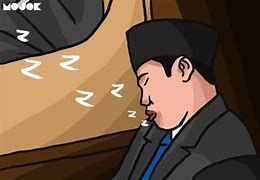
Chinese general (died 220)
"Guanyu" redirects here. For the racing driver, see
Guan Yu ([kwán ỳ] ⓘ; d. January or February 220[a]), courtesy name Yunchang, was a Chinese military general serving under the warlord Liu Bei during the late Eastern Han dynasty of China. Along with Zhang Fei, he shared a brotherly relationship with Liu Bei and accompanied him on most of his early exploits. Guan Yu played a significant role in the events leading up to the end of the Han dynasty and the establishment of Liu Bei's state of Shu Han during the Three Kingdoms period. While he is remembered for his loyalty towards Liu Bei, he is also known for repaying Cao Cao's kindness by slaying Yan Liang, a general under Cao Cao's rival Yuan Shao, at the Battle of Boma. After Liu Bei gained control of Yi Province in 214, Guan Yu remained in Jing Province to govern and defend the area for about seven years. In 219, while he was away fighting Cao Cao's forces at the Battle of Fancheng, Liu Bei's ally Sun Quan broke the Sun–Liu alliance and sent his general Lü Meng to conquer Liu Bei's territories in Jing Province. By the time Guan Yu learned about the loss of Jing Province after his defeat at Fancheng, it was too late. He was subsequently captured in an ambush by Sun Quan's forces and executed at Linju, Xiangyang Commandery (臨沮, present-day Nanzhang County, Xiangyang City, Hubei).
Guan Yu's life was lionised and his achievements were glorified to such an extent after his death that he was deified during the Sui dynasty. Through generations of storytelling, culminating in the 14th-century historical novel Romance of the Three Kingdoms, his deeds and moral qualities have been emphasized immensely, making Guan Yu one of East Asia's most popular paradigms of loyalty and righteousness. He is remembered as a culture hero in Chinese culture and is still worshipped by many people of Chinese descent in China, Taiwan, and other countries today. In religious devotion, he is reverentially called the "Emperor Guan" (Guān Dì) or "Lord Guan" (Guān Gōng). He is a deity worshipped in Chinese folk religion, popular Confucianism, Taoism, and Chinese Buddhism, and small shrines to him are almost ubiquitous in traditional Chinese shops and restaurants.
The authoritative historical source on Guan Yu's life is the Records of the Three Kingdoms (Sanguozhi) written by Chen Shou in the third century. During the fifth century, Pei Songzhi annotated the Sanguozhi by incorporating information from other sources to Chen Shou's original work and adding his personal comments. Some alternative texts used in the annotations to Guan Yu's biography include: Shu Ji (Records of Shu), by Wang Yin; Wei Shu (Book of Wei), by Wang Chen, Xun Yi and Ruan Ji; Jiang Biao Zhuan, by Yu Pu; Fu Zi, by Fu Xuan; Dianlue, by Yu Huan; Wu Li (History of Wu), by Hu Chong; and Chronicles of Huayang, by Chang Qu.
No explicit descriptions of Guan Yu's physical appearance exist in historical records. However, the Sanguozhi recorded that Zhuge Liang once referred to Guan Yu as having a "peerless beard".[b]
Traditionally, Guan Yu is portrayed as a red-faced warrior with a long, lush beard. The idea of his red face may have been derived from a description of him in Chapter 1 of the 14th-century historical novel Romance of the Three Kingdoms, where the following passage appears:[3]
"Xuande took a look at the man, who stood at a height of nine chi,[c] and had a two chi[d] long beard; his face was of the colour of a dark zao,[e] with lips that were red and plump; his eyes were like those of a crimson phoenix,[f] and his eyebrows resembled reclining silkworms.[g] He had a dignified air and looked quite majestic."
Alternatively, the idea of his red face could have been borrowed from opera representation, where red faces represented loyalty and righteousness.[citation needed] In illustrations of Romance of the Three Kingdoms, Guan Yu is traditionally depicted wearing a green robe over his body armour.
In Romance of the Three Kingdoms, Guan Yu's weapon was a guandao named Green Dragon Crescent Blade, which resembled a glaive and was said to weigh 82 catties (about 49 kg or 108 lbs).[7]
Legasi dan Pengaruh Budaya
Warisan Guan Yu menjangkau jauh melangkaui halaman sejarah dan kesusasteraan, meresapi setiap aspek budaya dan masyarakat Cina. Imejnya dihormati di kuil dan kuil di seluruh China, di mana dia disembah sebagai dewa perang dan perlindungan. Perbuatan lagendanya telah mengilhamkan banyak karya seni, kesusasteraan dan budaya popular, daripada opera Cina klasik kepada filem dan permainan video moden.
Kesimpulannya, 关羽 (Guan Yu) kekal sebagai tokoh yang menjulang tinggi dalam sejarah dan mitologi China, dihormati sebagai simbol kesetiaan, penghormatan, dan kebajikan mempertahankan diri. Kisahnya terus memikat penonton di seluruh dunia, berfungsi sebagai peringatan abadi tentang kuasa keberanian, integriti, dan persaudaraan. Sambil kita meraikan legasinya, marilah kita menghormati semangat Guan Yu dan berusaha untuk menerapkan sifat mulianya dalam kehidupan kita sendiri.
Daripada Wikipedia, ensiklopedia bebas.
Guan Yu (meninggal dunia pada tahun 219),[1] dengan gaya namanya iaitu Yunchang, merupakan seorang jeneral yang berkhidmat di bawah laksamana Liu Bei pada lewat Dinasti Han Timur di China.
Jika anda melihat rencana yang menggunakan templat {{tunas}} ini, gantikanlah dengan templat tunas yang lebih spesifik.
3°24′6,51″B 101°46′2,62″Đ / 3,4°B 101,76667°Đ / 3.40000; 101.76667
Cao nguyên Genting (tiếng Mã Lai: Tanah Tinggi Genting; tiếng Trung: 雲頂高原; bính âm: Yúndǐng gāoyuán, Hán Việt: Vân Đính cao nguyên; tiếng Anh: Genting Highlands) có độ cao hơn 2000m so với mực nước biển nên Genting có khí hậu mát mẻ quanh năm là một đỉnh núi nằm trong dãy núi Titiwangsa ở giáp giới giữa các bang Pahang và Selangor của Malaysia và nơi có khu nghỉ mát núi có cùng tên.
Nếu đi từ Kuala Lumpur bằng xe hơi mất một tiếng đồng hồ. Ở đây có cáp treo dài nhất Đông Nam Á gọi là Genting Skyway (3.38 km[1]), tuy nhiên đến tháng 3 năm 2009 thì đã bị tuyến cáp treo Bà Nà (Đà Nẵng) ở Việt Nam phá kỷ lục (hơn 5.04 km)[2]. Năm 2006, khu nghỉ mát này thu hút 18,4 triệu du khách.[1] Khu nghỉ mát cao nguyên Genting được tạo dựng bởi Tan Sri Lâm Ngô Đồng vào cuối thập niên 1960.
Đôi khi khu vực này được gọi bằng tên không chính thức là Las Vegas của Malaysia vì đây là nơi duy nhất có sòng bạc hợp pháp ở Malaysia, do công ty Resorts World Bhd, một công ty con của Genting Group, và First World Hotel and Resort Sdn Bhd quản lý. Khu nghỉ mát, tên gọi là khu nghỉ mát cao nguyên Genting, cũng có nhiều khách sạn do các công ty con Genting sở hữu, bao gồm Genting Hotel, Highlands Hotel, Resort Hotel, Theme Park Hotel và Awana Genting. First World Hotel có tổng cộng 6.118 phòng, là khách sạn lớn nhất thế giới.[3] Khách sạn này vượt qua MGM Grand Las Vegas, khách sạn lớn nhất thế giới trước đây với 5.690 phòng. Các cơ sở giải trí khác ở Genting còn có các công viên chủ đề, sân golf, các khu mua sắm, tàu lượn cao tốc, phòng hòa nhạc và với hơn 80 cửa hàng bán lẻ, 60 địa điểm vui chơi, giải trí.
Cao nguyên Genting còn được biết đến bởi các danh hiệu như " Thành phố trong mây" hay "Thành phố giải trí (City of Entertainment)" vì ở cao nguyên này mọi người có thể thấy mây và đôi khi mây bay thấp hơn so với độ cao của cao nguyên Genting
Xe cáp đến Genting có chiều dài 3,38 km là xe cáp treo dài nhất Đông Nam Á và được ghi nhận như " Hệ thống xe cáp treo đơn nhanh nhất Đông Nam Á "[4], giúp du khách du lịch có một tầm nhìn xanh dọc đường đến với khu du lịch với việc nhìn phong cảnh xung quanh đường lên đỉnh.
Là ngôi đại tự tuyệt vời nhất Genting nằm ở độ cao 1419m, nơi có bức tượng Phật thầy Thanh Thủy (Chin Swee) nổi tiếng. Nay Bà Nà, Việt Nam là tuyến xe cáp dài nhất Đông Nam Á
Cách Kula Lumpur 51 km, du khách chỉ mất có 45 phút lái xe để đến đây. Dịch vụ Limousine có thể tìm thấy ở mọi nơi. Dịch vụ xe buýt chất lượng cao có thể đón được nhiều nơi để đến với cao nguyên này. Xe 26 và 44 chỗ ngồi trực tiếp từ Kula Lampur và những địa điểm khác. Để thuận tiện nhất, du khách có thể đón xe Go Genting Express từ trạm xe buýt Puduraya, Pasarakyat, trạm kL Sentral, Terminal Putra Gombak, Hentian Kajang, và 1-Utama Shopping Complex.
Thời gian: Tháng 11-2008.
Citations from volume 36 of the Sanguozhi
Guarding Jing Province
Between 212 and 214, Liu Bei started a campaign to seize control of Yi Province from the provincial governor Liu Zhang. Most of Liu Bei's subordinates participated in the campaign, while Guan Yu remained behind to guard and oversee Liu Bei's territories in Jing Province.[Sanguozhi 14]
In Romance of the Three Kingdoms
The 14th-century historical novel Romance of the Three Kingdoms glorifies Guan Yu by portraying him as a righteous and loyal warrior. Guan Yu is one of the most altered and aggrandised characters in the novel,[citation needed] which accounts for his popular image in Chinese society.
See the following for some fictitious stories in Romance of the Three Kingdoms involving Guan Yu:
Guan Yu appears in Chinese operas such as Huarong Trail, Red Cliffs, and other excerpts from Romance of the Three Kingdoms. His costume is a green military opera uniform with armour covering his right arm and the knees of his pants. The actor's face is painted red with a few black lines, to represent honour and courage. He also wears a long three-section black beard made of yak hair and carries the Green Dragon Crescent Blade. Traditionally, after the show ends, the actor has to wash his face, burn joss paper, light incense, and pray to Chinese deities.[citation needed]
Notable actors who have portrayed Guan Yu in film and television include:[citation needed] Lu Shuming in Romance of the Three Kingdoms (1994); Wang Yingquan in The Legend of Guan Gong (2004); Ti Lung in Three Kingdoms: Resurrection of the Dragon (2008); Ba Sen in Red Cliff (2008–2009); Yu Rongguang in Three Kingdoms (2010); Donnie Yen in The Lost Bladesman (2011); Au Sui-Wai in Three Kingdoms RPG (2012); Han Geng in Dynasty Warriors (2019).
Films which make references to Guan Yu include: Stephen Chow's comedy film From Beijing with Love (1994), which, in one scene, refers to the story of Hua Tuo performing surgery on Guan Yu's arm;[citation needed] Zhang Yimou's Riding Alone for Thousands of Miles (2005), in which the fictional story of Guan Yu slaying six generals and crossing five passes forms a major part of the narrative;[citation needed] the horror comedy film My Name Is Bruce (2007), where Guan Yu's vengeful spirit is accidentally set free by a group of teenagers and he begins to terrorise their town.[citation needed]
Guan Yu appears as a playable character in many video games based on Romance of the Three Kingdoms which are produced by Koei, including: the strategy game series of the same title as the novel; the action game series Dynasty Warriors and Warriors Orochi. Other non-Koei titles in which he also appears include: Total War: Three Kingdoms;[21] Puzzle & Dragons;[22] Sango Fighter; Destiny of an Emperor; and Atlantica Online. He is also referenced in Emperor: Rise of the Middle Kingdom, Titan Quest, and Koihime Musō.
Guan Yu is referenced in the Portal Three Kingdoms of the card game Magic: The Gathering on a playable card.[citation needed]
The hero Jiang Jun that appears in an add-on for the game For Honor, developed by Ubisoft Montreal, is heavily based on Guan Yu.[citation needed] He is introduced in the 2018 DLC Marching Fire Expansion, along with the other characters from the Chinese Wulin faction. The Jiang Jun wields Guan Yu's signature Guandao weapon and is portrayed as a wise older general.
Guan Yu is referenced in the 2020 game Hades by Supergiant Games. The final "aspect", or form, unlocked for the Eternal Spear weapon is the Aspect of Guan Yu, the Frost Fair Blade, which resembles an ornamented Guandao. The Eternal Spear is said to be the same spear wielded by Guan Yu in the future, taking this form.[23]
Guan Yu is a popular motif in collector coins series featuring Ancient warriors. The Polish Mint issued a 2oz silver coin featuring him in 2019,[24] and another one in 2021.[25]
During the course of price liberalization debates as part of China's reform and opening up, Deng Xiaoping invoked the fictitious story of Guan Yu crossing five passes and slaying six generals (as described in the novel Romance of the Three Kingdoms) as part of his rhetoric.[26] "To the Chinese audience familiar with the famous tale of Lord Guan, there could have been no doubt of Deng's determination to push ahead with radical price reforms."[27] As Deng explained in 1986 to a North Korean delegation:[27]
Only once prices have been straightened out will be able to step up reform ... Doesn't China have the tale of Lord Guan 'Slaying Six Generals to Force Through Five Passes?' We might have to pass through even more 'passes' than Lord Guan, slaying even more 'generals.' To force a pass is not at all easy and requires taking great risks.
Battle of Red Cliffs and aftermath
Liu Biao died in 208 and was succeeded by his younger son, Liu Cong, who surrendered Jing Province to Cao Cao when the latter started a campaign that year with the aim of wiping out opposing forces in southern China. Liu Bei evacuated Xinye together with his followers and they headed towards Xiakou, which was guarded by Liu Biao's elder son Liu Qi and independent of Cao Cao's control. Along the journey, Liu Bei divided his party into two groups – one led by Guan Yu which would sail along the river towards Jiangling; another led by Liu Bei which would travel on land. Cao Cao sent 5,000 elite cavalry to pursue Liu Bei's group and they caught up with them at Changban, where the Battle of Changban broke out. Liu Bei and his remaining followers managed to escape from Cao Cao's forces and reach Han Ford (漢津), where Guan Yu's group picked them up and they sailed to Xiakou together.[Sanguozhi others 8][Sanguozhi 12]
In 208, Liu Bei allied with Sun Quan and they defeated Cao Cao at the decisive Battle of Red Cliffs. Cao Cao retreated north after his defeat and left Cao Ren behind to defend Jing Province.[Sanguozhi 13] During the Battle of Jiangling, Guan Yu was stationed at the northern routes to block Cao Ren's supply lines via infiltration. Li Tong engaged Guan Yu, attempting to support Cao Ren's forces, but died from illness during the campaign.[Sanguozhi others 9] Xu Huang and Man Chong also engaged with Guan Yu in Hanjin(漢津) in order support Cao Ren against Zhou Yu.[Sanguozhi others 10] Finally, Yue Jin, stationed in Xiangyang, defeated Guan Yu and Su Fei (蘇非) and drove them away.[Sanguozhi others 11] After seizing and pacifying the various commanderies in southern Jing Province, Liu Bei appointed Guan Yu as the Administrator (太守) of Xiangyang and General Who Defeats Bandits (盪寇將軍), and ordered him to station at the north of the Yangtze River.[Sanguozhi 13]
Sun-Liu territorial dispute
During the mid 210s, a territorial dispute broke out between Liu Bei and Sun Quan in southern Jing Province. According to an earlier arrangement, Liu Bei "borrowed" southern Jing Province from Sun Quan to serve as a temporary base; he would have to return the territories to Sun Quan once he found another base. After Liu Bei seized control of Yi Province, Sun Quan asked him to return three commanderies but Liu Bei refused. Sun Quan then sent his general Lü Meng to lead his forces to seize the three commanderies. In response, Liu Bei ordered Guan Yu to lead troops to stop Lü Meng.[Sanguozhi others 12] Gan Ning, one of Lü Meng's subordinates, managed to deter Guan Yu from crossing the shallows near Yiyang. The shallows were thus named 'Guan Yu's Shallows' (關羽瀨).[Sanguozhi others 13] Lu Su (the overall commander of Sun Quan's forces in Jing Province) later invited Guan Yu to attend a meeting to settle the territorial dispute. Around 215, after Cao Cao seized control of Hanzhong Commandery, Liu Bei saw that as a strategic threat to his position in Yi Province so he decided to make peace with Sun Quan and agreed to divide southern Jing Province between his and Sun Quan's domains along the Xiang River. Both sides then withdrew their forces.[Sanguozhi others 14]
In 219, Liu Bei emerged victorious in the Hanzhong Campaign against Cao Cao, after which he declared himself "King of Hanzhong" (漢中王). He appointed Guan Yu as General of the Vanguard (前將軍) and bestowed upon him a ceremonial axe. In the same year, Guan Yu led his forces to attack Cao Ren at Fancheng and besiege the fortress. Cao Cao sent Yu Jin to lead reinforcements to help Cao Ren. It was in autumn and there were heavy showers so the Han River overflowed. The flood destroyed Yu Jin's seven armies. Guan Yu had prepared his navy to advance during the flood, and Yu Jin surrendered to Guan Yu while his subordinate Pang De refused and was executed by Guan Yu. Various local officials such as Administrator of Nanxiang Fu Fang and Inspector Jing Province Hu Xiu defected to Guan Yu. Angered by Cao Cao's forced labor put upon them, rebel peasants and bandits in Liang(梁), Jia(郟) and Luhun(陸渾) also submitted to Guan Yu and received official seals to work as his raiders. Guan Yu's fame spread throughout China.[Sanguozhi 15][11]
The Shu Ji recorded that before Guan Yu embarked on the Fancheng campaign, he dreamt about a boar biting his foot. He told his son Guan Ping, "I am growing weaker this year. I might not even return alive."[Sanguozhi zhu 5]
With Liu Bei gaining Hanzhong as well as the northwest commanderies of Jing: Fangling, Shangyong and Xicheng; and now after Yu Jin's defeat, Cao Cao contemplated relocating the imperial capital from Xu further north into Hebei to avoid Guan Yu, but Sima Yi and Jiang Ji told him that Sun Quan would become restless when he heard of Guan Yu's victory. They suggested to Cao Cao to ally with Sun Quan and get him to help them hinder Guan Yu's advances; in return, Cao Cao would recognise the legitimacy of Sun Quan's claim over the territories in Jiangdong. In this way, the siege on Fancheng would automatically be lifted. Cao Cao heeded their suggestion. Previously, Sun Quan had sent a messenger to meet Guan Yu and propose a marriage between his son and Guan Yu's daughter. However, Guan Yu not only rejected the proposal, but also scolded and humiliated the messenger. Sun Quan was enraged.[Sanguozhi 16]
Early life and career
Guan Yu was from Xie County (解縣), Hedong Commandery, which is present-day Yuncheng, Shanxi. His original courtesy name was Changsheng (長生).[Sanguozhi 1] He was very studious, and was interested in the ancient history book Zuo zhuan and could fluently recite lines from it.[Sanguozhi others 1][Sanguozhi zhu 1] He fled from his hometown for unknown reasons[h] and went to Zhuo Commandery. When the Yellow Turban Rebellion broke out in the 180s, Guan Yu and Zhang Fei joined a volunteer militia formed by Liu Bei, and they assisted a colonel Zou Jing in suppressing the revolt.[Sanguozhi 2][Sanguozhi others 2] Guan Yu and Zhang Fei were known as stalwart and strong men; which made them talented fighters.[9]
When Liu Bei was appointed as the Minister (相) of Pingyuan, Guan Yu and Zhang Fei were appointed as Majors of Separate Command (别部司马), each commanding detachments of soldiers under Liu Bei. Liu Bei cherished them as if they were his own brothers and the three of them were as close as brothers to the point of sharing the same room, sleeping on the same mat and eating from the same pot.[10] Zhang Fei and Guan Yu protected Liu Bei whenever there were large crowds of people and also stood guard beside him when he sat down at meetings all day long. They followed him on his exploits and were always ready to face any danger and hardship.[Sanguozhi 3] And for their military prowess were appraised as "enemy of ten-thousand".[Sanguozhi 4] Guan Yu was noted for his kindness towards his soldiers and fealty to Liu Bei akin to family, but had no respect for the gentry and treated them without courtesy.[Sanguozhi others 3][Sanguozhi 5][Sanguozhi others 4]
Request to take Qin Yilu's wife
During the Battle of Xiapi in late 198, when the allied forces of Cao Cao and Liu Bei fought against Lü Bu, Guan Yu sought permission from Cao Cao to marry Qin Yilu's wife Lady Du (杜氏) after they won the battle. After Cao Cao agreed, Guan Yu still repeatedly reminded Cao Cao about his promise before the battle ended. After Lü Bu's defeat and death, Cao Cao was so curious about why Guan Yu wanted Lady Du so badly and he guessed that she must be very beautiful, so he had her brought to him. Cao Cao ultimately broke his promise as he took Lady Du as his concubine and adopted her son Qin Lang (whom she had with Qin Yilu).[Sanguozhi zhu 12][Sanguozhi zhu 13]
The Shu Ji recorded an incident as follows:
When Liu Bei was in the imperial capital Xu, he once attended a hunting expedition together with Cao Cao, during which Guan Yu urged him to kill Cao Cao but he refused. Later, when Liu Bei reached Xiakou (after his defeat at the Battle of Changban), Guan Yu complained, "If you heeded my advice during the hunting expedition in Xu, we wouldn't end up in this troubling situation." Liu Bei replied, "I didn't do so then for the sake of the Empire. If Heaven still helps those who are righteous, it might be possible that this may turn out to be a blessing in disguise!"[Sanguozhi zhu 14]
Pei Songzhi commented on the Shu Ji account as follows:
When Liu Bei, Dong Cheng and others plotted against Cao Cao, their plan failed because it was leaked out. If he did not want to kill Cao Cao for the sake of the Empire, what did he mean when he said this? If Guan Yu did urge Liu Bei to kill Cao Cao during the hunting expedition and Liu Bei did not do so, it was probably because Cao Cao's close aides and relatives were present at the scene and they outnumbered him. Besides, there was a lack of careful planning so Liu Bei had to wait for another opportunity. Even if Liu Bei succeeded in killing Cao Cao, he would not have been able to escape alive, so Liu Bei did not heed Guan Yu's words. There was nothing to regret. The hunting expedition event happened in the past, so it was used to justify that Guan Yu had given Liu Bei "valued advice", which the latter ignored.[Sanguozhi zhu 15]
Alternate account from the Shu Ji
The Shu Ji mentioned that Sun Quan initially wanted to keep Guan Yu alive in the hope of using Guan Yu to help him counter Liu Bei and Cao Cao. However, his followers advised him against doing so by saying, "A wolf shouldn't be kept as a pet as it'll bring harm to the keeper. Cao Cao made a mistake when he refused to kill Guan Yu and landed himself in deep trouble. He even had to consider relocating the imperial capital elsewhere. How can Guan Yu be allowed to live?" Sun Quan then ordered Guan Yu's execution.[Sanguozhi zhu 9]
Pei Songzhi disputed this account as follows:
According to (Wei Zhao's) Book of Wu, when Sun Quan sent Pan Zhang to block Guan Yu's retreat route, Guan Yu was executed after he was captured. Linju was about 200 to 300 li away from Jiangling, so how was it possible that Guan Yu was kept alive while Sun Quan and his subjects discussed whether to execute him or not? The claim that 'Sun Quan wanted to keep Guan Yu alive for the purpose of using him to counter Liu Bei and Cao Cao' does not make sense. It was probably meant to silence smart people.[Sanguozhi zhu 10]
Sun Quan sent Guan Yu's head to Cao Cao, who arranged a noble's funeral for Guan Yu and had his head properly buried with full honours.[Sanguozhi zhu 11] In October or November 260, Liu Shan granted Guan Yu the posthumous title "Marquis Zhuangmou" (壯繆侯).[Sanguozhi 20][Sanguozhi others 19] According to posthumous naming rules in the Yi Zhou Shu, "mou" was meant for a person who failed to live up to his reputation.[12]























